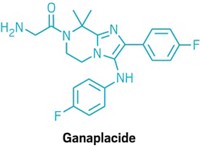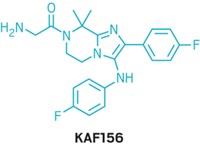Advertisement
Grab your lab coat. Let's get started
Welcome!
Welcome!
Create an account below to get 6 C&EN articles per month, receive newsletters and more - all free.
It seems this is your first time logging in online. Please enter the following information to continue.
As an ACS member you automatically get access to this site. All we need is few more details to create your reading experience.
Not you? Sign in with a different account.
Not you? Sign in with a different account.
ERROR 1
ERROR 1
ERROR 2
ERROR 2
ERROR 2
ERROR 2
ERROR 2
Password and Confirm password must match.
If you have an ACS member number, please enter it here so we can link this account to your membership. (optional)
ERROR 2
ACS values your privacy. By submitting your information, you are gaining access to C&EN and subscribing to our weekly newsletter. We use the information you provide to make your reading experience better, and we will never sell your data to third party members.
Biological Chemistry
Gain And Loss In Malaria War
Ambitious ventures launch as GSK pulls two treatments for the disease
by Lisa M. Jarvis
March 10, 2008
| A version of this story appeared in
Volume 86, Issue 10
THE FRUSTRATING BATTLE against malaria took two steps forward and one step back last week. New ventures targeting more affordable and effective treatments were launched, but they came on the heels of a setback in the antimalaria drug pipeline.
The Institute for OneWorld Health has signed on Sanofi-Aventis and Amyris Biotechnologies to develop a low-cost semisynthetic route to artemisinin, the active pharmaceutical ingredient (API) in a range of malaria drugs. The API is currently extracted from the sweet wormwood plant, and the companies say a nonseasonal source would help stabilize the supply and price of malaria treatments.
The goal is to design a commercial-scale manufacturing process that will turn out enough API to treat 200 million people-about 40% of the population that contracts malaria each year. The project builds on technology developed by University of California, Berkeley, professor Jay Keasling, who developed a microbial system to produce artemisinin through fermentation.
"This collaboration enables us to reach a goal that some scientists only dream of," says Jack Newman, senior vice president of Amyris. "What started as a breakthrough in the lab can now evolve into a real solution that will truly make a difference in the world."
The partnership taps into Amyris' experience in engineering microbial strains and Sanofi-Aventis' expertise in fermentation and chemistry process development. The companies aim to incorporate their semisynthetic product into artemisinin-based combination therapies by 2010.
While some scientists are working to ensure a more steady supply of existing medicines, others are developing new treatments. Last week, the PATH Malaria Vaccine Initiative and Seattle Biomedical Research Institute (SBRI) announced plans to establish the Human Challenge Center (HCC), a facility in Seattle dedicated to testing new malaria vaccines in human volunteers. The plan for the center is to evaluate vaccine candidates that disrupt the malaria parasite along different points in its development.
HCC is the next component of the Malaria Clinical Trials Center, a facility at SBRI intended to bring together basic science and clinical research.
A vaccine would add a much-needed weapon in an ever-depleting arsenal against malaria. On top of the resistance that has rendered some drugs ineffective, safety concerns have recently diminished the antimalarial pipeline. GlaxoSmithKline announced late last month that it is recalling Lapdap, a combination of chlorproguanil and dapsone, and discontinuing development of Dacart, a therapy that combines chlorproguanil, dapsone, and an artemisinin derivative.
According to GSK, results from a Phase III trial comparing Dacart with Novartis' Coartem, which also contains an artemisinin derivative, indicated that trial participants with an enzyme deficiency had significantly lower levels of hemoglobin in their blood, a condition that can cause anemia. In a separate trial, Lapdap, which was sold only in Kenya, was also shown to lower hemoglobin in that patient group.




Join the conversation
Contact the reporter
Submit a Letter to the Editor for publication
Engage with us on Twitter